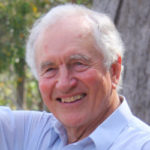Hong Kong’s autonomous, free status, One Nation Two Systems agreement is at risk of disappearing. The Hong Kong legislature had proposed extradition laws which would make residents and foreigners who live there or who might be travelling through the city at risk if wanted in mainland China.
In response to this threat, and for several days, over a million citizens protested, almost entirely peacefully. Their efforts were partially rewarded on Saturday June 13 when the Hong Kong Chief Executive, Carrie Lam, announced that introduction of the extradition law would be delayed.
Carrie Lam has responsibility for the oversight of those laws. It’s instructive to consider her conduct, but I also acknowledge that managerialist, inflexible administration is alive and well in Australian bureaucracies. Michael Pezzullo, the chief of Australia’s absurdly large, ‘we cover everything’, Department of Home Affairs is an example of this way of thinking and acting.
Lam and Pezzullo have much in common. Both insist they value the freedom to criticise and be criticised. In response to criticism, both can be heavy handed when defending or denying their actions.
How to explain the Lam-Pezzullo brand of authoritarianism? The answer does not require a psychological assessment, even if some of their traits suggest it’s time to put them on a psychoanalyst’s couch. That sort of inquiry would overlook the influence of those cultures which assume the imperatives of order and obedience. These are the work places of public servants, where they are socialized, where they influence the behaviour of others, where they seek to maintain efficiency and control.
Sociologist Max Weber described bureaucrats’ concern with efficiency as a form of violence which could trap people in an ‘iron cage’ from which it would be difficult to escape. Novelist Franz Kafka described nightmares caused by the inflexibility of bureaucratic figures who were inaccessible and usually invisible.
Carrie Lam is the fourth Chief Executive of Hong Kong. Initially qualified as a social worker, her management roles seem to have stifled the principle that struggles for justice are a social work priority. Her c.v. lists Head Prefect at a Catholic Girls School and senior Hong Kong government positions, including Director of Welfare and Secretary of Development. She is Beijing’s choice, their arm of government. Disabled by decades of deference to hierarchies and by a preoccupation with maintaining them, she seems ill prepared to resist demands from Beijing.
Lam is caught within her bureaucratic culture in Hong Kong but anaesthetized by Beijing breath from just across the border. That is the kindest way to interpret even the introduction of this extradition legislation. A less generous diagnosis is to see a contented bureaucrat unable to to stand up to bullies and, until the ‘think again delay’ on the extradition laws, seemingly indifferent to the needs of Hong Kong people.
In response to the violence which occurred at the end of a day of massive, mostly peaceful demonstrations, Lam attempted to divide the protesters. She labelled their actions an organized riot committed by outsiders who had nothing in common with the respectful citizens of Hong Kong: a familiar good versus bad distinction. She was on the side of the good.
Asked about her compliance with Beijing, Lam was tearful, reminded her audience that she was a Hong Konger, loyal to the city, trusted by the people. It was the performance of an actor cornered by the contradiction that to protect her people’s freedom she would have to surrender it.
Other theatres have witnessed individuals who in ann attempt to impress have overacted. In Shakespeare’s Hamlet, Queen Gertrude saw through an ingratiating, insincere character and commented, ‘The lady doth protest too much, methinks.’
Australia has also witnessed powerful figures making repeated claims as though repetition would convince others. Prime Minister Morrison repeated he was ‘at arm’s length’ from decisions to raid the home of a journalist and ABC offices. The Deputy Commissioner of the Australian Federal Police, Neil Guagan, repeated that protecting ‘security’ was a reason for the police raids but he remained a supporter of press freedom. Morrison and Guagan’s imitation of Carrie Lam prompts the observation, ‘Me thinks they do protest too much.’
But China’s pressure on Hong Kong legislators should not be underestimated. Carrie Lam must look over her shoulder at Big Brother. President Xi Jinping probably phoned Lam to tell her to hold the line, not to tolerate criticism let alone massive public protests.
Such telephone calls are also made in Australia. Chief Secretary Pezzullo rang Senator Rex Patrick to complain about the Senator’s comments on Pezzullo’s attitude to the media. Patrick felt intimidated by the call. Pezzullo’s conduct was compounded by his boss Minister Peter Dutton whose style is also influenced by a managerialist culture.
Dutton’s values give another clue about conditions which breed intolerance and a sense of superiority. Dutton has to believe utterly in himself and not entertain doubts. In support of Pezzullo, he declared, ‘I have always found Senator Patrick to be a person of the sort of character who would seek to misrepresent the Secretary’s words.’
Pezzullo was consistent. Another Senator, this time Jordan Steel-John, recalled that Pezzullo had phoned him after he had criticised the secrecy of Home Affairs.
Cultures which nurture authoritarianism seem unstoppable. They build on the easy top down use of power, a common male practice which is easily imitated and has lasted for centuries. Like a virus, the culture spreads, well beyond bureaucracies’ walls.
When I last wrote about authoritarianism in Hong Kong, Beijing and Canberra, one reader was apparently high on a diet of denial. He wrote. ‘… there was no Tiananmen Square massacre. Even the New York Times which started the massacre myth said it was ‘near’ the Square.’
Managerialist, authoritarian thinking and acting can be everywhere. Reflection on disturbing events in Australian government circles can contribute to an understanding of police state trends in Hong Kong.
Stuart Rees, OAM, is Professor Emeritus, University of Sydney and recipient of the Jerusalem (Al Quds) Peace Prize




